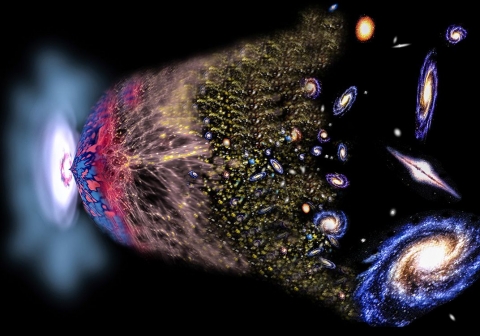FCC
Uniting Leptogeneses
With the discovery of the Higgs boson, particle physics has reached an era of unprecedented success. Almost all phenomena in nature can in principle be explained with known particles of the Standard Model (SM). Some puzzles still remain unsolved,…
Read morePhysics at the Future Circular Collider
“Progress in knowledge has no price” with these words, Alain Blondel concluded the FCC Physics workshop at CERN. Over two days, the meeting reviewed the results of the FCC Conceptual Design Report and discussed a reliable implementation plan to meet…
Read moreTheory goes forward to meet the FCC-ee strong experimental demands.
The remarkable precision of LEP and other lepton colliders in the past has been instrumental in testing and understanding the Standard Model. In particular it was able to predict, by their effect on quantum corrections (a.k.a. ’loops’), the masses…
Read moreNew dosimeter design for FCC
The presence of radiation at the LHC may cause damage to sensitive electronics equipment and magnets, jeopardising the operation of the world’s largest and most complex machine. Until now, CERN radiation experts have been using state-of-the-art…
Read moreHighlights from the FCC Week 2017
The 3rd annual meeting of the Future Circular Collider collaboration brought together more than 500 leading minds in engineering, science and industry to discuss the progress of the study and lay the foundations for the FCC design report.…
Read moreHunting for right-handed neutrinos: the new game in town
What lies behind and beyond the Standard Model is an obsession of particle physicists today. The neutrino physicists have a somewhat different palette of opinions as compared to their colleagues working at the high energy frontier. They consider…
Read moreInterview with Guido Tonelli
Guido Tonelli, former spokesperson of the CMS experiment and one of the protagonists of the Higgs boson discovery, discusses the meaning of one of the major breakthroughs of the century, as well as the importance of pushing beyond the current limits…
Read morePhysics at 100 TeV
A report discussing the opportunities for physics discoveries with a future 100 TeV hadron circular collider was presented earlier this summer during the 2016 FCC Week. A future hadron-hadron collider machine will be able to cover previously…
Read moreDesign of Twin Solenoid & Dipoles Detector Magnet System for the Future Circular Collider
The Future Circular Collider study for hadron-hadron collisions/collider (FCC-hh) foresees a collision energy of 100 TeV, which is about 7 times higher than the LHC. For the detectors this means that in order to determine the properties of the…
Read moreFCC-hh baseline layout and parameter set
The core of the Future Circular Collider (FCC) project is a hadron collider called "FCC-hh" which aims at colliding proton beams with a centre of mass energy of 100 TeV - more than seven times the energy that can be reached in the LHC. A…
Read more
